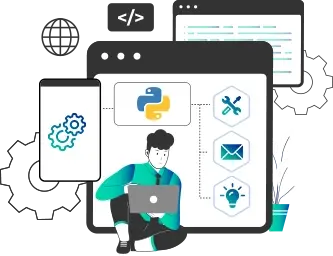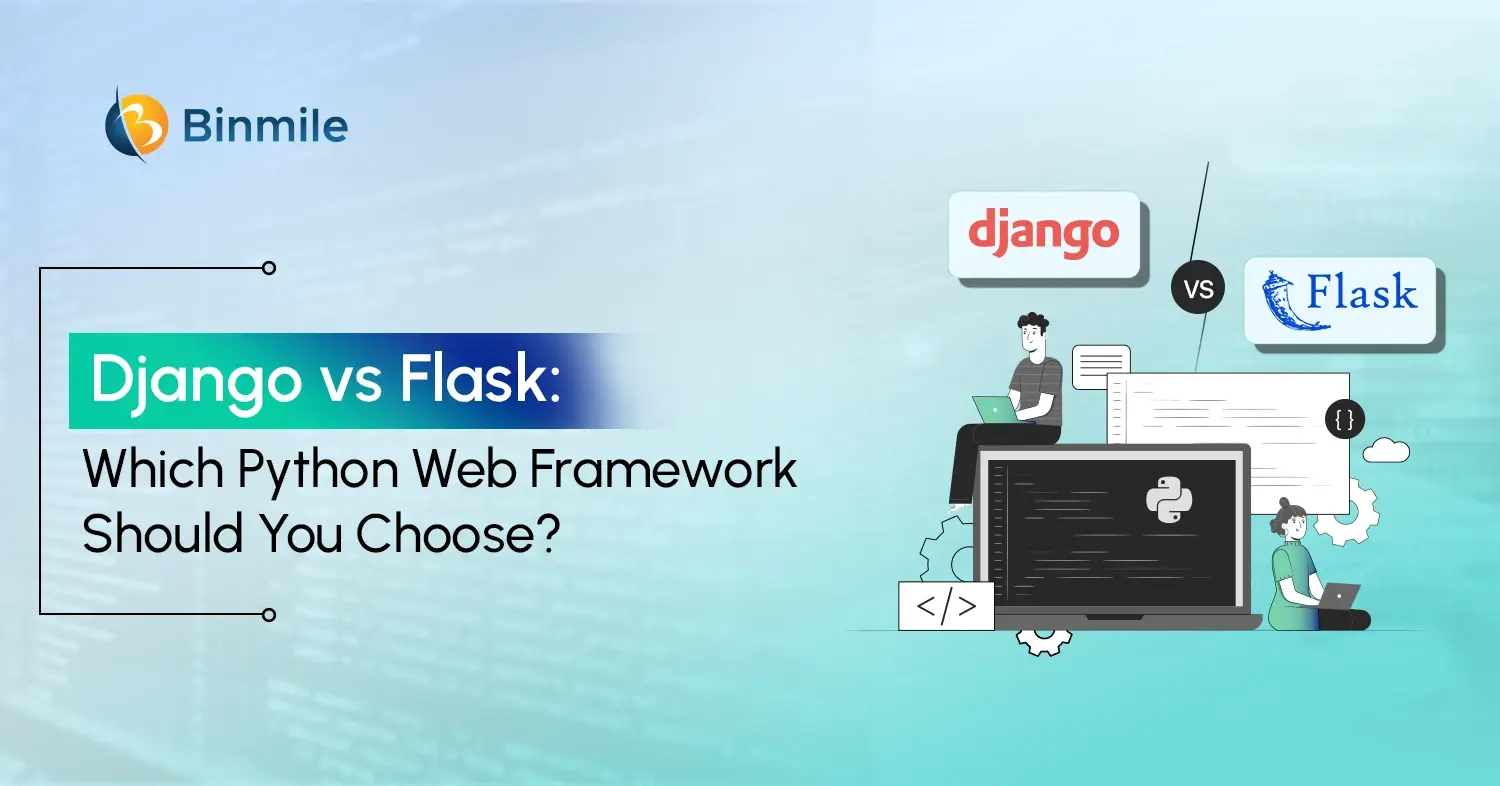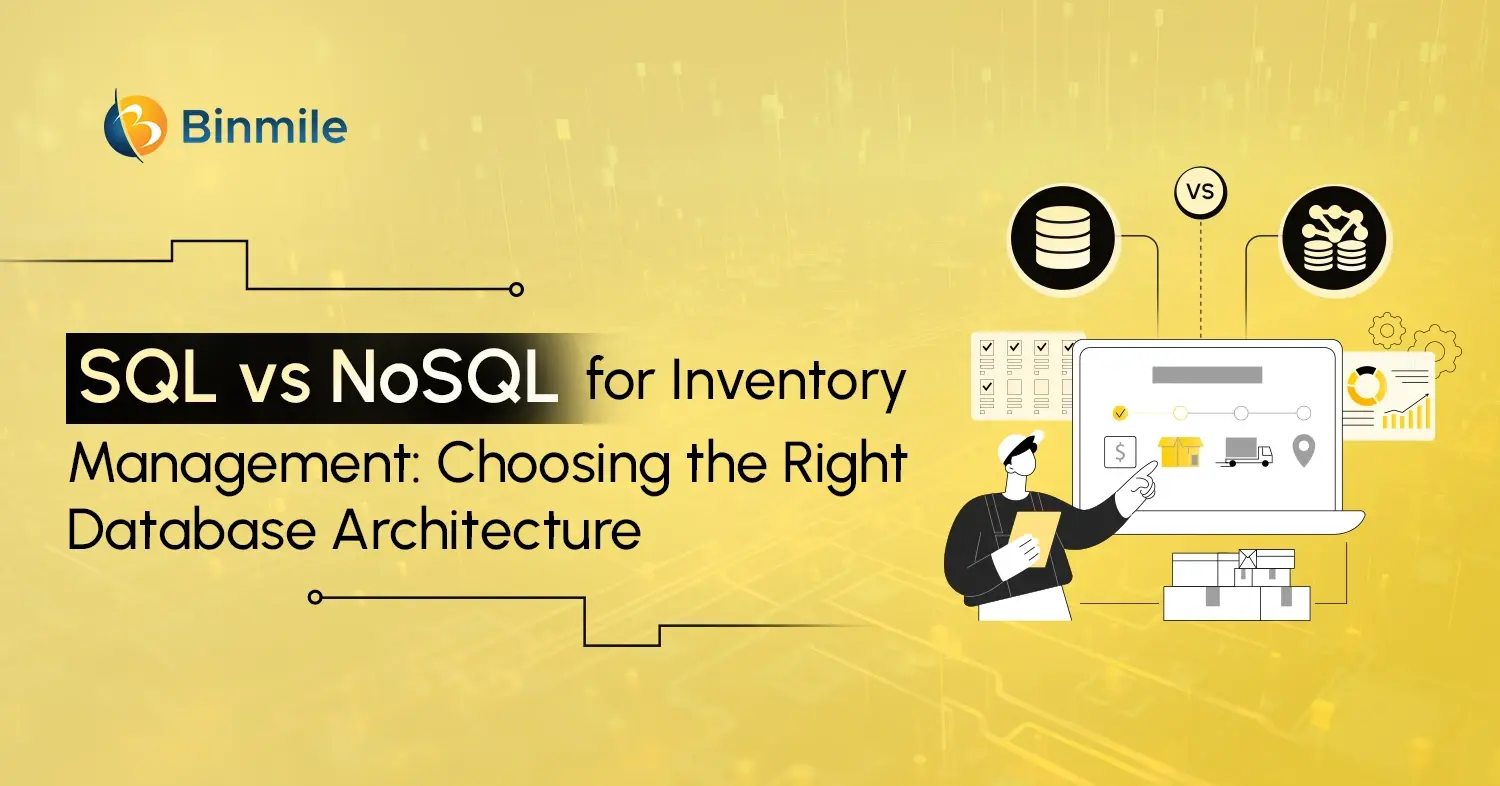Web frameworks have been essential in helping developers create interactive web apps, websites, and online platforms. Amongst several frameworks, Python is the most commonly used. It is well-known for building powerful web applications. However, the real challenge web development companies and their development teams may face is choosing the best Python web framework for the projects. Two top contenders are Django vs Flask for developing web applications. Django has been traditionally popular among web developers for offering features such as rapid development, security, and maintainable websites. However, in recent years, Flask has moved past Django to take the top spot thanks to its lightweight, more independent, and flexible nature.
So, if you, too, are wondering about how to choose which Python framework for web development, then this blog is for you. Even though both are perfect for your projects, with features like extensibility and being mature web frameworks that offer similar functionality in handling requests and serving up documents. However, let’s focus on the best use cases for Django and Flask, what the differences are between them, and what makes them unique.
Flask vs Django: Making the Right Choice for Your Web App Development
When it comes to Python web development frameworks, Django and Flask are two of the most popular options. Both have their unique strengths and weaknesses, making them suitable for different types of web application projects. So, let’s find out who’s the clear winner in the Django vs Flask battle of the best:

Flask vs Django: Ultimate Battle for the Best Python Web Framework Title
As discussed earlier, both Python web frameworks are ideal choices for rapid and secure app development services, but vary in their use cases and approaches. Through this head-to-head comparison between Flask vs Django, we will share key points that will let you make an informed decision, depending on your business requirements.
1. Definition & Features
Django is a high-level, full-stack web framework that follows the Model-View-Template (MVT) architectural pattern. It comes with a lot of built-in features and functionality, making it an opinionated framework. Django has a steeper learning curve, but it provides developers with a comprehensive set of tools and components, from the ORM (Object-Relational Mapping) to the admin interface, out of the box.
Django is widely accepted and used by various well-known sites such as Instagram, Mozilla, Pinterest, and The Washington Times, among others, making it a popular choice for businesses leveraging the Django framework.
Top Features of Django:
- Rapid Development
- Secure
- Scalable
- Fully loaded
- Versatile
- Open Source
- Vast and Supported Community
Flask, on the other hand, is a microframework that is less opinionated and more minimalistic. It provides a lightweight and flexible foundation for building web applications, allowing developers to choose their tools and libraries. This makes Flask easier to learn and faster to set up for simple projects, but it also requires more manual configuration and decision-making from the developer.
Some major companies that use the Flask Python web framework are Netflix, Lyft, Reddit, Uber, and Patreon, among others.
Top Features of Flask:
- Built-in development server and a fast debugger
- High scalability
- Uses Jinja2 templates and is WSGI 1.0 compliant.
- Easy to deploy in production
- Lightweight framework
- Integrated unit testing system
- Third-party Extension Support
2. Level of Complexity
Django is a full-featured, “all-in-one” framework that provides a lot of built-in functionality right out of the box. It has a steeper learning curve, but it gives you everything you need to build complex, feature-rich websites.
Flask, on the other hand, is a more lightweight and minimalist framework. It has fewer built-in features, which makes it simpler to learn and set up, but also requires you to manually configure more pieces of your project.
3. Project Scope
Django excels at building large, enterprise-level websites and web applications. Its comprehensive set of tools makes it well-suited for projects with complex features like user authentication, database integration, and admin interfaces.
Flask is better suited for smaller, more focused projects like prototypes, MVPs (Minimum Viable Products), or simple web apps and APIs. Its lightweight design allows for quicker development cycles, but it may not have all the features needed for a large-scale project.
4. Database Integration
Django has a powerful built-in ORM (object-relational mapping) system that makes it easy to interact with databases. It supports a wide range of database options for web apps, including SQLite, PostgreSQL, MySQL, and more.
Flask doesn’t have a built-in ORM, but it can be easily integrated with other database libraries and ORMs, like SQLAlchemy or PyMongo, depending on your project’s needs.
5. Templating and Routing
Django has a robust templating engine and URL routing system, making it easier to manage the presentation and navigation of complex websites.
Flask uses the Jinja2 templating engine and has a more lightweight approach to routing, where you define routes directly in your application code.
6. Performance and Deployment
Django is generally more resource-intensive than Flask, as it includes more built-in features. However, Django’s performance can be optimized through techniques like caching and asynchronous tasks.
Flask is known for its lightweight and fast performance, making it a good choice for building high-performance web applications, APIs, or microservices. Its simplicity also makes it easier to deploy and scale compared to the more complex Django framework.
From Django to Flask, we build custom Python web applications to help you deal with modern problems and requirements flawlessly.

Flask vs Django: Which is the Better Framework?
Even though both Python web frameworks have their positives and downsides, you should choose the framework that best suits your project requirements and web app development solutions. However, when it comes to the debate of Django vs Flask, there are certain scenarios where you can choose one over the other. So, let’s find out when to choose Django and when to go for Flask.

When to Choose Django:
- To build a large, complex web application: Django makes it relatively easier to develop and manage large applications of an enterprise nature with features such as user authentication, URL mapping, database integration, and administration interfaces.
- Need a robust admin interface: It also contains a basic administration toolset with which developers can immediately begin managing the data and users within their web application—a neat advantage.
- Focus on established & active community: Combined with a strong community that has a great deal of extensive documentation, third-party libraries, and community-driven developments can be useful for solving problems.
When To Choose Flask:
- Developing a lightweight, rapid prototyping, or MVP project: Flask, due to its relative simplicity, propels rapid application creation and more freedom; the framework is suitable for creating web applications, APIs, or microservices.
- Needing high performance & scalability: Because of its popularity for being lightweight and fast-performing, it becomes ideal for developing high-performing web apps and microservices.
- Preferring a more flexible & less opinionated framework: If you want a framework that allows you to choose your tools and libraries, Flask is better than Django.
Also Read: Python Security Best Practices
5 Must-Know Tips for Choosing the Right Web Application Framework
We’ve so far discussed how to make the right choice between Django vs Flask, but this is the question of going for the best Python web development framework. What about other times when you want to select a different framework? In that case, we’re listing a few factors to consider before you opt for the best software development framework.

- The choice of framework depends on application needs, what kind of requirements you’ve got for the web application, the features required, or the time needed for the web application.
- A robust core library is a significant advantage of a web framework. So, go for the framework that offers features like authentication, authorization, caching, data validation, URL mapping, and templating, among others.
- Unit testing is a valuable practice for verifying code, and scalability, though influenced by factors beyond the framework, is another consideration. So, consider the depth of testing and level of scalability offered.
- Choose a framework that offers detailed documentation, as it helps you figure out issues when you get stuck somewhere. Moreover, the best Python web framework is the one that has an easy learning curve that suits your timeline and your developer’s skill level.
- Consider key factors such as regular updates, bug fixes, and ease of installation, extension, and integration with plugins for a successful framework selection.
Get dynamic, scalable, & secured digital products powered by versatile Python web app frameworks and driven by our web app development services.

Conclusion
To speed up app development solutions, increase developers’ efficiency, and make your web app project scale up easily, Python web app frameworks are your best shot. Python web development frameworks offer a complete solution for high-quality web application development. Even though it offers a variety of frameworks, Django and Flask are the top two frameworks that are the first choice of developers and enterprises for a range of high-value use cases, such as progressive web apps, AI, and ML projects. However, it’s tough to decide between Django vs Flask, which one is the better choice for your projects, as both have their own set of features, positives, and negatives. So, to assist you in selecting the right framework for projects to bring in all the differences, success, and efficiency in your software development services journey, we’ve offered this in-depth exploration into these two frameworks.
Naturally, the choice between Django and Flask ultimately depends on your business requirements, your team’s experience, and even the level of scalability and complexity needed by your web app development project. Choose wisely; if you’re unsure, it’s always a good idea to connect with a Python development company. The company possesses experts who specialize in modern technologies and frameworks to build high-quality and functioning custom web and desktop applications.
Common Queries Answered
Choosing between Flask vs Django depends on your project’s needs.
- Django: Best for larger, full-featured projects requiring scalability, built-in tools, and a structured framework. It includes authentication, admin panels, and database management out of the box.
- Flask: Ideal for smaller or highly customized projects. It’s lightweight and flexible, allowing more control over design and features.Consider the project’s complexity, timeline, and specific requirements to make the right choice.
Flask is an excellent choice for lightweight web applications due to its simplicity, flexibility, and minimal setup requirements. It offers:
- A lightweight framework that avoids unnecessary overhead.
- High customization for tailored solutions.
- Easy integration with extensions for added functionality.
- Quick prototyping and deployment for small-scale projects.
- Flask empowers developers to build efficient, scalable applications with complete control over design and features.
Django is better suited for large, complex applications, as it provides built-in tools like an ORM, admin panel, and authentication, which streamline development and scalability. Flask, being lightweight, allows more flexibility but requires manual integration of third-party tools for scalability.
In essence, Django offers an all-in-one solution for scaling quickly, while Flask gives developers granular control for custom scaling solutions.









